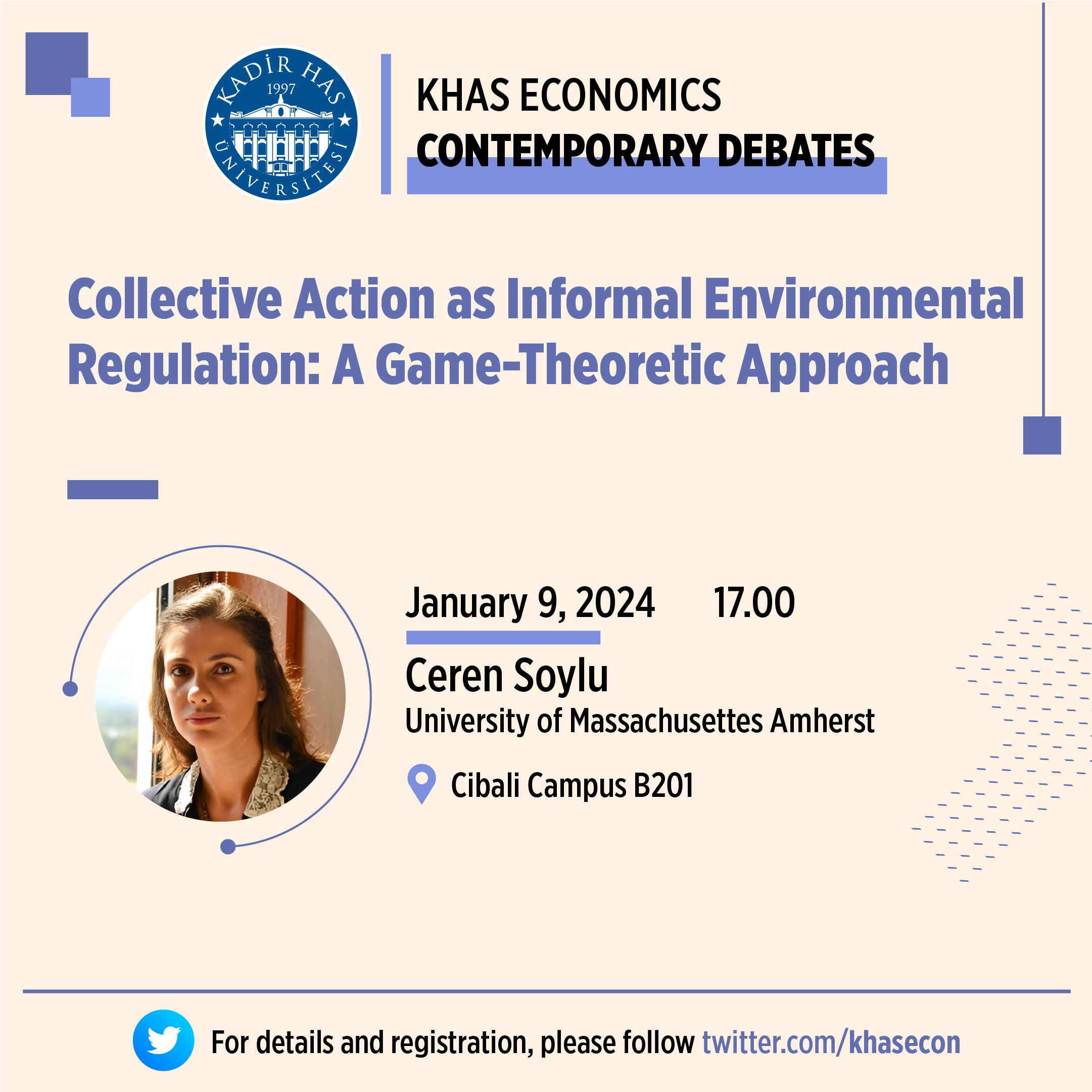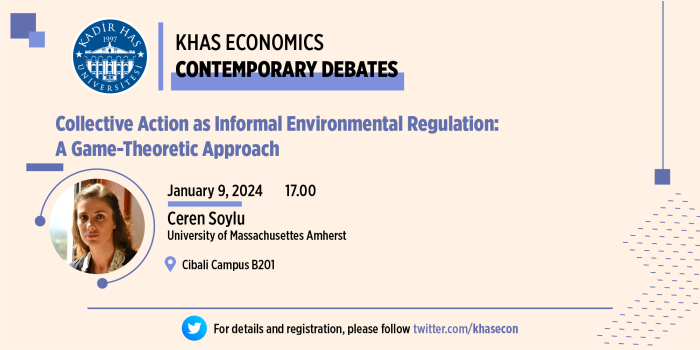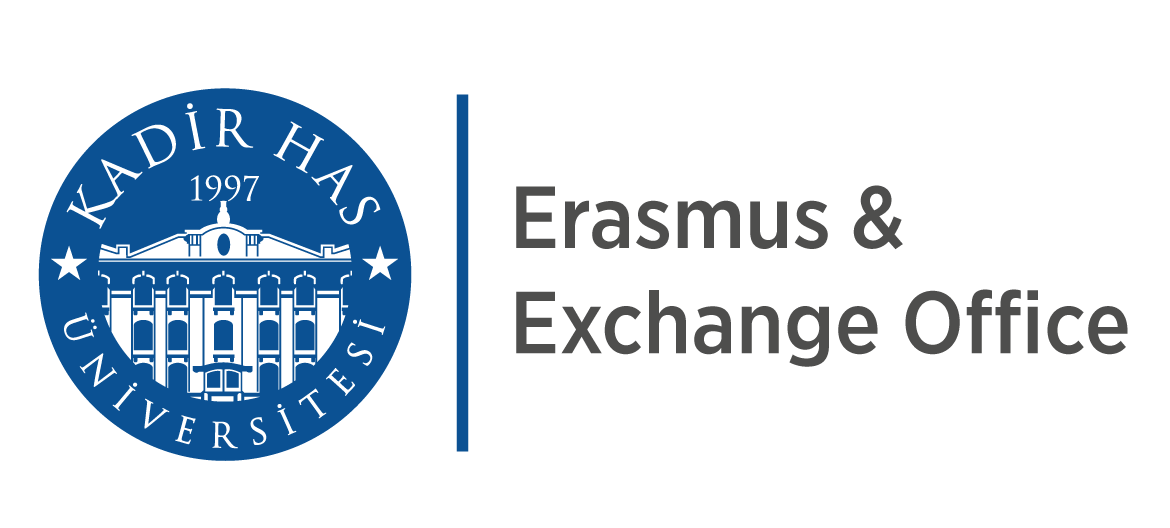
Contemporary Debates: Ceren Soylu

The guest of the Contemporary Debates series organized by Kadir Has University Department of Economics will be Ceren Soylu (University of Massachusettes Amherst).
Soylu will discuss “Collective Action as Informal Environmental Regulation: A Game-Theoretic Approach” at B-201 on Tuesday, January 9th at 17:00.
Abstract: Research on the use of natural resources has emphasized the role that institutions and successful coordination among individuals play in preventing the overexploitation of common-pool resources, hence averting what is famously known as the tragedy of the commons. Although models focusing on the implied collective action problem—devising and implementing rules to govern resource use—adequately capture many environmental degradation problems, in many cases, as observed in the global resource and land rush of the last decades, external actors exacerbate the tragedy by reducing the capacity for sustainable use. This leads to a second coordination problem for resource users: how they may cooperate against external causes of degradation. This latter aspect of collective action acts as an informal regulation mechanism that compensates for inefficiencies in formal environmental regulations. The model developed in this paper formalizes this dual collective action problem faced by resource users, and the relationship between formal and informal environmental regulations, by way of a dynamic tripartite game theoretical model of conflict between resource users, an external actor causing negative environmental externalities and the state. The model combines acquisitive (income) and constitutive (identity) motives and shows that heterogeneity and informational asymmetries can increase the effectiveness of threat of action by resource users as an informal regulation mechanism.
